OpenUP Final Conference: ‘Opening Up the Research Lifecycle: Innovative Methods for Open Science’ - Day I
The OpenUP final conference was a celebration of 2 wonderful years of intensive work & an opportunity to exchange state-of-the-art ideas for the Review-Disseminate-Assess phases of the research lifecycle under the prism of Open Science. Report from Day 1
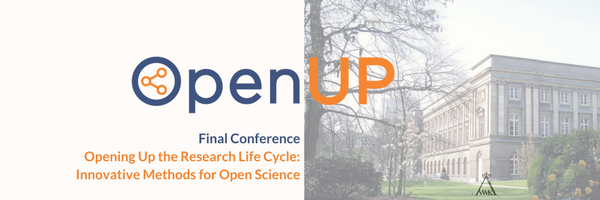
The OpenUP final conference was both a celebration of two wonderful years of intensive work and an opportunity to share and promote state-of-the-art ideas and services for the review-disseminate-assess phases of the research life cycle under the prism of Open Science. Key aspects and challenges of the currently transforming science landscape were showcased in different interactive sessions, innovative initiatives were displayed during the Marketplace, original ideas were expressed by young academics and policy recommendations were discussed in aim to address the emerging challenges and to adapt to the new conditions. Through all the conference the participants had the opportunity to engage with the speakers and with each other using the Mentimeter interactive tool.
Session 1
The conference kicked-off with the inspiring keynote speech of professor Sophie Scott, “Science communication why bother?”. Professor Scott, has a special interest in researching the neuroscience of voices, speech and laughter and is known for her public engagement work. She has been awarded a UCL Provost’s Award for Public Engagement. The main focus of her talk was set in what is modern science communication and how to reach today's audience.

Image 1: Professor Sophie Scott, “Science communication why bother?”
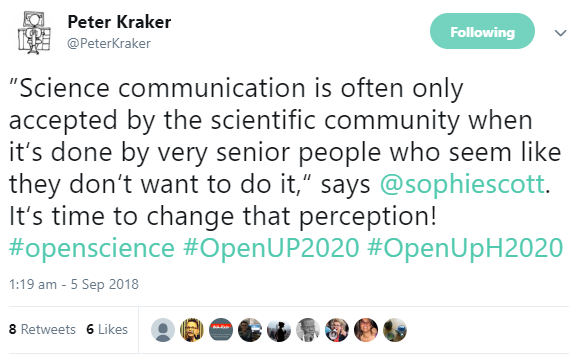 |
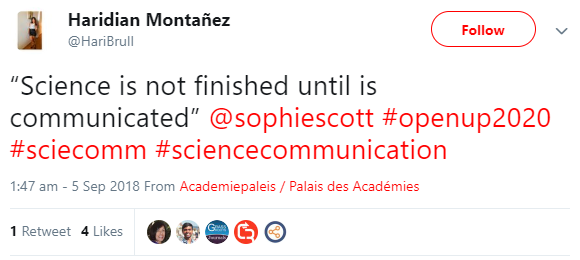 |
Image 2: Social media insights from the speech of professor Sophie Scott
Session 2 - Motivate and Meet: Review | Disseminate | Assess
The next session: “Motivate and Meet: Review | Disseminate | Assess”, was dedicated on core topics of OpenUP, i.e. open peer review, altmetrics and innovative dissemination. The session was opened with a presentation to the OpenUP results by Edit Görögh (Open Peer Review in OpenUP), Tony Ross-Hellauer (Innovative Dissemination in OpenUP) and Clemens Blümel (Alternative metrics in OpenUP). Following this, the winning submissions of the OpenUP Blog Competition for Early Career Researchers and Students were introduced and winners had the chance to present their work and approach to Open Science. The discussion gave the possibility to gain insights on the views of early career researchers on the role of innovative dissemination (Sometimes, all it takes to draw people’s attention is establishing a new hashtag), the importance of OPR methods, the establishment of altmetrics and their impact to their work. Participants agreed that cultural change can only come through the community engagement. During the break, the quality of the submissions initiated small groups discussions were the participants agreed that the future in Open Science is in good hands.
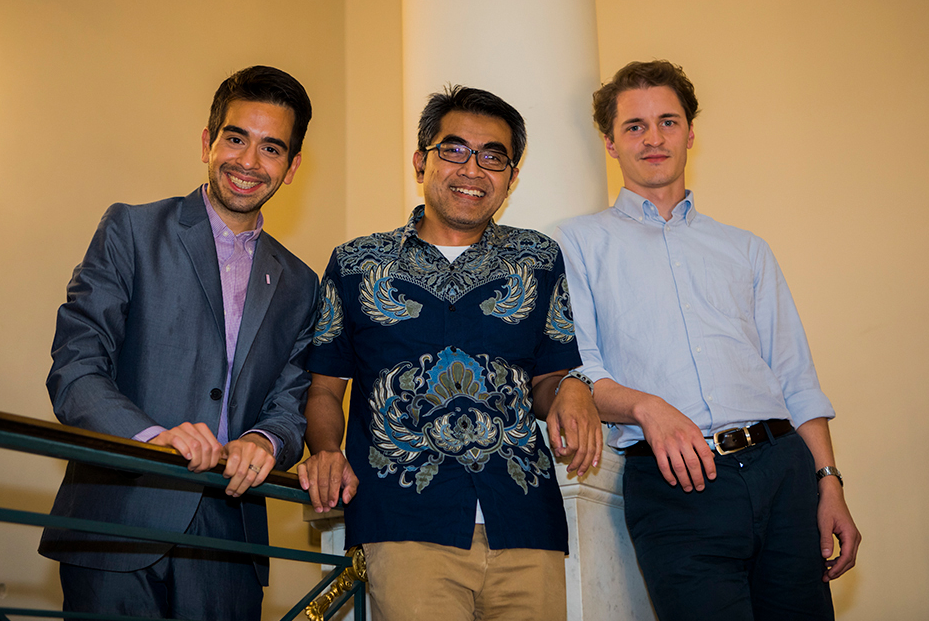
Image 3: The three winners of the OpenUP Blog Competition for early career researchers. From left to right Nicolás Alessandroni, Dasapta Erwin Irawan and Marcel Knöchelmann (Victor Venema could not attend due to previous engagements )
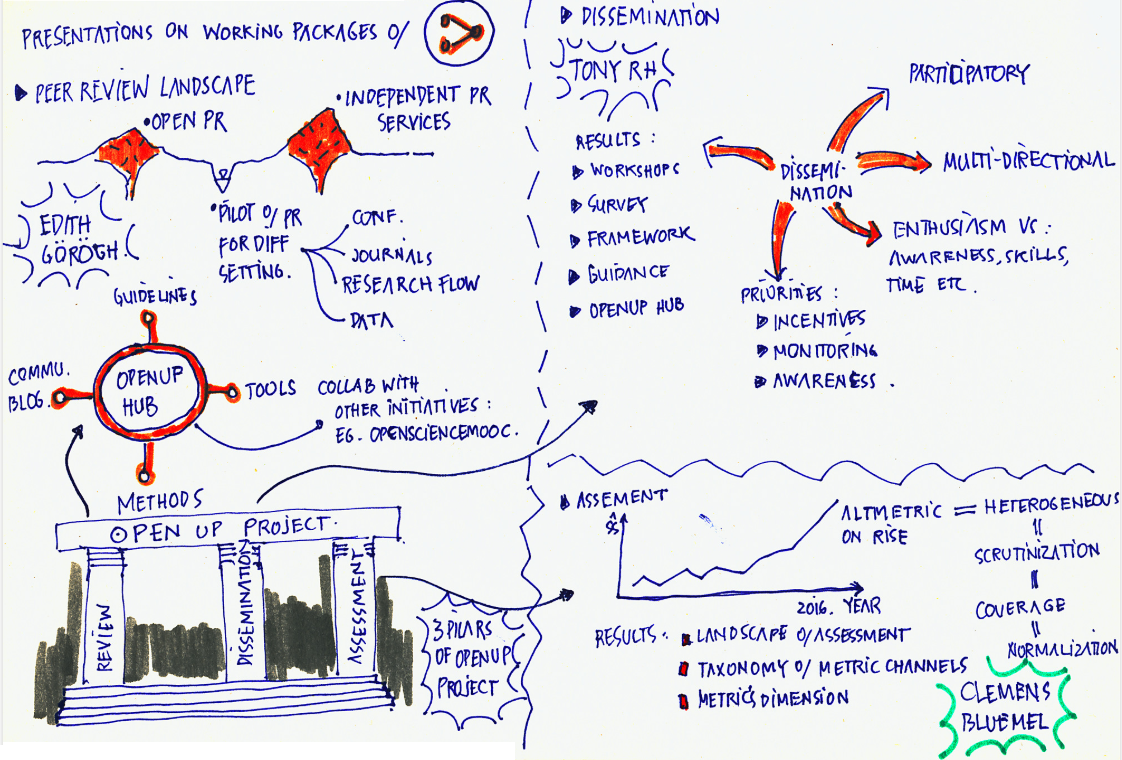 |
 |
Image 4: Visual notes from the presentation of OpenUP result on Open Peer Review, Altmetrics & Innovative Dissemination (left) and from the panel discussion with the winners of the Blog Competition (right). CC-BY Dasapta Erwin Irawan, available via Figshare
Session 3 - Motivate and Meet: Online tools and platforms
Next, representatives of significant efforts with different backgrounds, talked about online tools and platforms as solution to support Open Science and related challenges and opportunities. Eleni Toli presented the OpenUP Hub, an online tool from researchers to researchers with a special focus in peer review, assessment and dissemination. Peter Kraker talked about Open Knowledge Maps, an open non-profit solution for discovery and visualization of the scientific knowledge. To this point, Dr. Kraker underlined the significance of non-profit open science tools that add value along the research lifecycle. They are used by millions of researchers, students and practitioners every day, and due to their open nature, they can easily be reused by the whole ecosystem. Then, Lambert Heller talked about the need to grow an Open Science culture and presented VIVO, a research-focused discovery tool that enables collaboration among scientists across all disciplines. Finally, Elizabeth Moylan (Wiley) sharing a publisher’s perspective pointed out that the use of online tools and platforms is undoubtedly transforming every step of the research life cycle, from how research is enabled to its publication. Nevertheless, technology is just one aspect impacting on the open research ecosystem, the other aspect is the need to foster and support an open research culture itself.
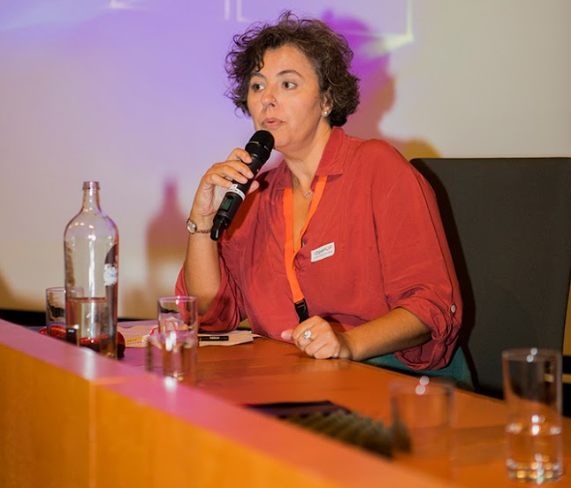 |
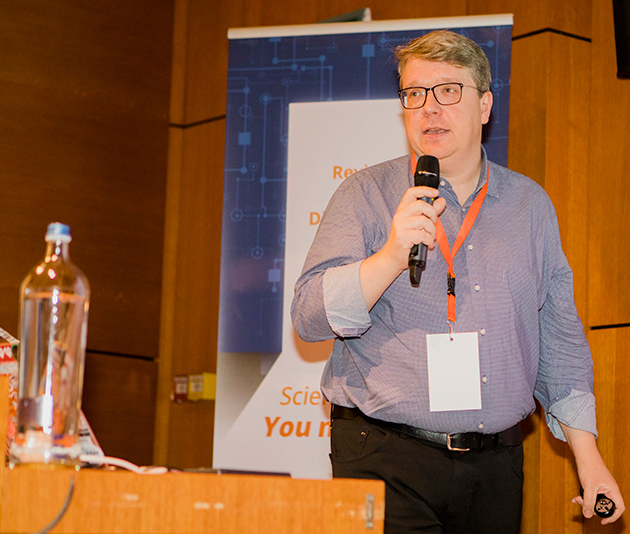 |
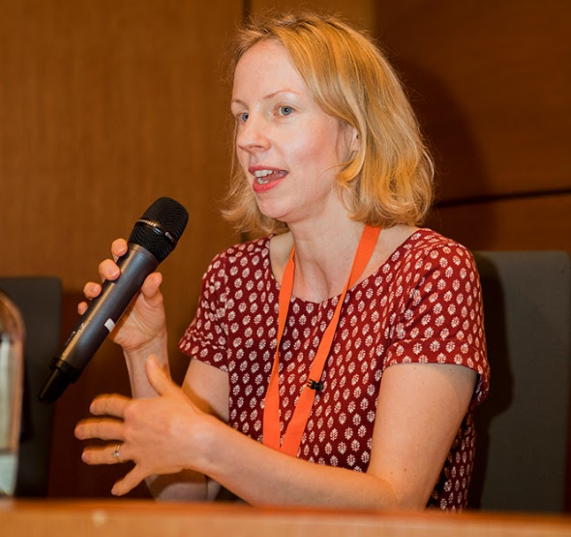 |
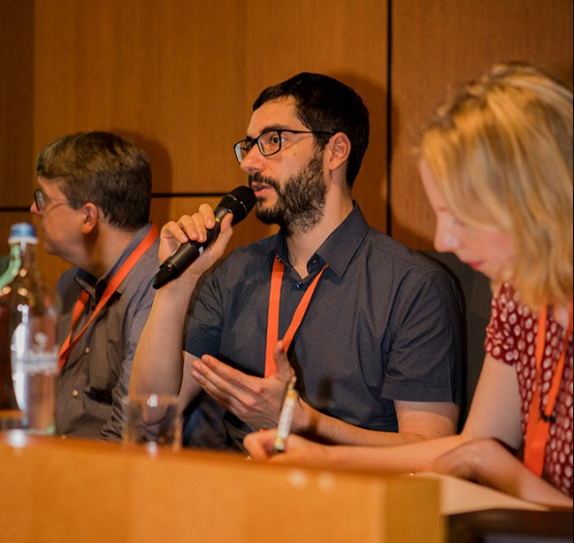 |
Image 5: Eleni Toli, Lambert Heller, Elizabeth Moylan and Peter Kraker discussing online tools and platforms supporting researchers to open up science.
Session 4 - Motivate and Meet: Open Science Cafe & end of the day
The first day successfully closed with an Open Science Cafe where vivid discussions in small groups and exchange of innovative ideas started and continued during the conference reception and the conference dinner. The conversations were triggered by 16 statements on various subjects such as gender issues in science and research quality and shortly jumped to the future of Open Science, Plan S and cOAlition S, which were announced the day before (4 September 2018).
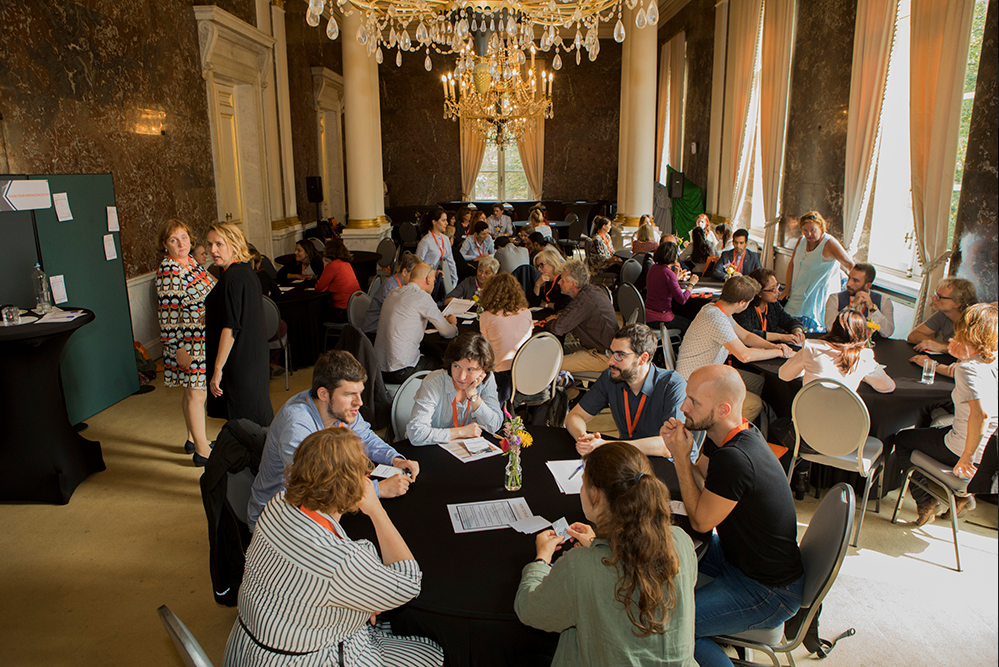
Image 7: Open Science Cafe




